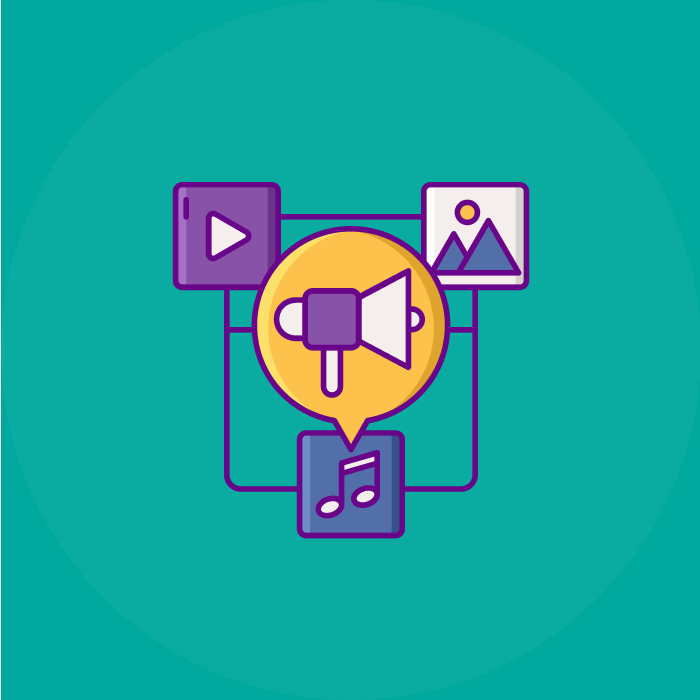Content marketing is more than just blogging or posting on social media platforms. Learn more about how content marketing can help your business reach the right audience.
Contrary to what many people might think, content marketing is more than just blogging. When people think about blogging and content marketing, some people may think that they are the same because they both involve creating content for a website.
While that’s true that they overlap in that sense, blogging is only one part of a content marketer’s arsenal of strategies. While blogging simply involves writing content for a website, content marketing also takes note of how content reaches the right audience, delivers relevant and significant value, and contributes towards turning their readers into paying customers.
As mentioned from Content Mavericks, "Content is just… content unless it drives behavior change in your target audience. Then it’s called “content marketing."
Here’s why content marketing is much more than just blogging – something to consider when looking for digital marketing services for your website.
Differences Between Content Marketing and Blogging
1. Keyword Research
Bloggers write for the sake of producing content. They’re given a topic and they write about it. They might do a bit of research for the sake of writing a well-written article, but that’s it. They might be asked to insert a keyword or link somewhere within or at the beginning of the article, but what happens to the article after writing and publishing it is out of their hands.
Content marketers, however, can’t just write blog posts of whatever they want. Their articles start with comprehensive keyword research to find low-hanging fruit in phrases or keywords that are easy to rank for. Without keyword research, a content marketer may feel like they’re wasting their time writing an article because it’s unlikely to rank on search engine results.
2. Competition Research
Bloggers do not need to research other articles written with the same topic. There’s nothing wrong if their articles are similar or if they choose to go with a completely different angle. At the end of the day, it’s not their job to worry about outranking similar articles.
Content marketers, on the other hand, have to research what their competitors are saying in terms of content. Some keywords may be low-hanging fruit and can rank easily, but they may find that the top results are business competitors who have also hired content marketers for this keyword.
It’s up to the content marketer to read what they’ve written and see if their content can be outranked by providing better content.
3. Building Relationships with Bloggers
A blogger is more like an influencer. Instead of building a network like content marketers, they have their own fanbase who read or view their content. Bloggers can try to build a network and reach out to fellow bloggers, but this may not be necessary for some bloggers.
In contrast, content marketers have to build relationships with other bloggers and influencers in certain niches. This allows them to tap into their network when they have to get an interview or for influencers to share their content to their followers.
4. Constant Promotion of Content
Bloggers will write a post, publish it, get it out on social media to their followers to hear about it, and then move on. Sometimes, they can do a throwback post to revive their content, but for the most part, you rarely see bloggers re-hashing their content. Instead, they’re out there creating new and fresh content for their followers.
Content marketers, on the other hand, won’t stop promoting relevant articles. Even if content is a few months old, if it’s still relevant to the public, they will get their network to share and re-share content. Not only will this drive up engagement, but it can continue to drive traffic to a website, so content will continue to help the website.
5. Virality
Content made by content marketers are designed to be viral. If not through low-hanging but high-traffic keywords, content can use different tactics like moment marketing (content that references a current event) or mentioning a brand or influencer that can drive that same brand or influencer to share that content to their followers.
That’s not to say that bloggers don’t produce viral content. A blogger can still go viral if they create content that drives their followers to share content and then it reaches others outside their followers.
However, bloggers don’t necessarily post with the purpose of becoming viral. If you look at some influencers’ content, you’ll notice that there are some pieces that were not necessarily viral.
6. Marketing Calendars
True to their name, content marketers’ jobs also consist of marketing. This is why they strategize their posts and create calendars that indicate what they’ll be selling or what content they should be releasing at a certain date to attract audiences.
7. Call To Action Present in Content
At the end of the content piece, content marketers have to answer the question, “So what?” What was the point of making your readers read your article? This was the CTA is for, telling readers to take action with the information they got from the content they had just digested.
This closes the content marketing loop by telling readers what to do next. This can be something like “Contact us today for a free consultation” or “Subscribe to our mailing list to enjoy exclusive discounts and freebies.” Gone were the days when acceptable CTAs were “Sign up here” or “Subscribe now” – nowadays, readers will want something in return for their own action.
CTAs are important because they’re what will drive your readers to do what you want. Is the purpose of your content to increase sales inquiries, get readers to sign up for a newsletter, or leave your website having made a purchase? The content is important, but the CTA should be the final thing that drives potential customers in the way you want them to go.
Some bloggers may also have CTAs (“Be sure to like, subscribe, and follow me on social media!”), but this is more on them building their following rather than answering the “So what?” portion content marketing does.
Content Marketing and Blogging for Business
Given the differences between the two, that’s not to say that content marketing is useful for businesses while blogging isn’t. Content marketing drives traffic to your website while tackling potential customers’ different buying stages.
Whether a potential customer is researching for a product, comparing products in the market, or finally deciding to buy a product, content marketing offers useful content to help them make a decision.
On the other hand, blogging can still reach out to your customers but on a more personal level. Consumer trends have changed in the last few decades, and customers today want to see businesses interact on a personal level.
Research shows that around 4 in 5 customers expect brands to connect people together because of the way they appeal to a diverse range of people. This shows that there has businesses who try to drive human connections with their customers can improve brand loyalty.
Content for Your Customers
Knowing your buyer’s process is the first step towards effectively marketing your business and providing content that is meaningful for them when making a decision to purchase your products or services. This is why you should be careful about the type of content you post on your website.
For example, if your content solely focuses on the part of the buyer’s journey where they recognize the problem and are searching for information at the moment, you’re not writing content targeted to potential customers that are on the decision stage and looking for that push.
As a result, you don’t have content that convinces users to make the purchase, call your business, or anything else that could lead to a sale.
While your content should be aligned with the different types of buyers that are on your website, it’s also important that your content is in line with your business goals. This is where a mixture of content marketing pieces and blog posts come in to handle both functions of content on your website.
Subscribe to weekly updates
You’ll also receive some of our best posts today



